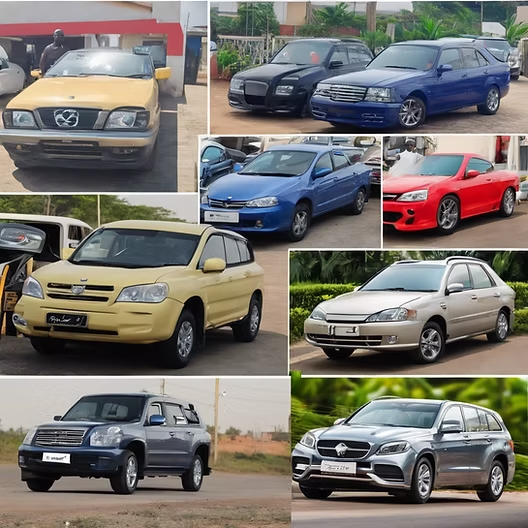Owning a car in Ghana is often seen as a symbol of success. It represents convenience, independence, and, for many, a certain level of prestige. But behind the comfort lies a financial reality that is often overlooked.
With rising fuel prices, maintenance expenses, and insurance costs, car ownership is more than just purchasing a vehicle, it’s a continuous investment.
A World Bank report reveals that vehicle ownership in Accra has increased sixfold over 25 years, from 40 per 1,000 people in 1990 to 260 per 1,000 in 2015.
Despite this growth, Ghana Investment Promotion Centre (GIPC) data shows that most residents still depend on trotros, taxis, and ride-hailing services for daily commuting. So, now, is owning a car in Ghana a luxury or a liability? Let’s delve into the numbers while highlighting the pros and cons.
The price tag of buying a car in Ghana
A report by Pulse Ghana indicated that the cost of purchasing a decent used car in Ghana ranges between GH₵80,000 to GH₵300,000, with brand-new models priced even higher. However, these figures do not account for registration, roadworthiness certification, and licensing fees, which can add thousands of cedis to the total cost, according to AnswersAfrica’s breakdown of DVLA charges.
Fuel Costs: A Growing Burden
Auto analysts from Pulse Ghana have reported that with petrol prices fluctuating between GH₵13 and GH₵15 per litre, fueling a regular sedan consuming 8 litres per 100km can cost GH₵1,300 – GH₵2,000 per month, making transportation a significant financial commitment.
Maintenance and Repairs: A costly reality
According to a Bank of Ghana report, GH₵131 million was spent on motor vehicle maintenance and running costs, including fuel, insurance, and servicing. Maintenance expenses alone accounted for 2.18% of the total cost, covering oil changes, tyre replacements, and brake fixes, which can set car owners back GH₵3,000 – GH₵5,000 per year. Additionally, unexpected breakdowns, such as engine repairs and transmission failures, can significantly increase these costs.
Insurance and road fees
An auto industry analysis published by Pulse Ghana shows that comprehensive car insurance in Ghana can range from GH₵1,500 – GH₵5,000 annually, depending on coverage levels. Roadworthiness certification and licensing fees further add to ownership costs, while parking charges in Accra range from GH₵5 to GH₵20 per day, accumulating over GH₵1,000 annually.
Depreciation: The hidden cost of ownership
A car’s value begins to drop the moment it is purchased. According to AutoLast Ghana, used cars tend to hold their value better than new ones because they have already undergone the steepest depreciation in their first few years
According to CediTalk , a brand-new sedan bought for GH₵100,000 may lose up to 40% of its value within the first three years, meaning its resale price could drop to GH₵60,000. This decline is even more pronounced for imported vehicles, as Cedi depreciation against the US dollar increases the cost of new imports
The Benefits of Owning a Car
Owning a car in Ghana has several advantages, including convenience, personal comfort, and safety. A study by Auto Last Report shows that Ghanaians spend an average of 45-90 minutes in trotros daily, while car owners save significant time by avoiding congested terminals. Ride-hailing services like Bolt and Uber, according to Pulse Ghana, can cost between GH₵30 – GH₵100 per ride, making regular usage nearly as expensive as owning a vehicle
Public Transport vs. Car Ownership
While GIPC reports show public transport remains the most widely used option, it has its drawbacks. Trotro fares in Accra range from GH₵3 to GH₵15 per trip, meaning a daily round-trip commute could cost GH₵500 – GH₵700 per month. Ride-hailing services, especially with surge pricing in rush hours, can be significantly costlier (GIPC).
Final Verdict: Luxury or Liability?
While car ownership offers freedom and convenience, it also comes with significant financial obligations. For those who can afford it, a car is a valuable asset that improves daily mobility. However, for others, the combined expenses—from fuel and maintenance to insurance and depreciation- make car ownership more of a liability than a luxury
So, before making the decision, it is essential to weigh all costs carefully and determine whether owning a car aligns with your financial stability and lifestyle needs.




